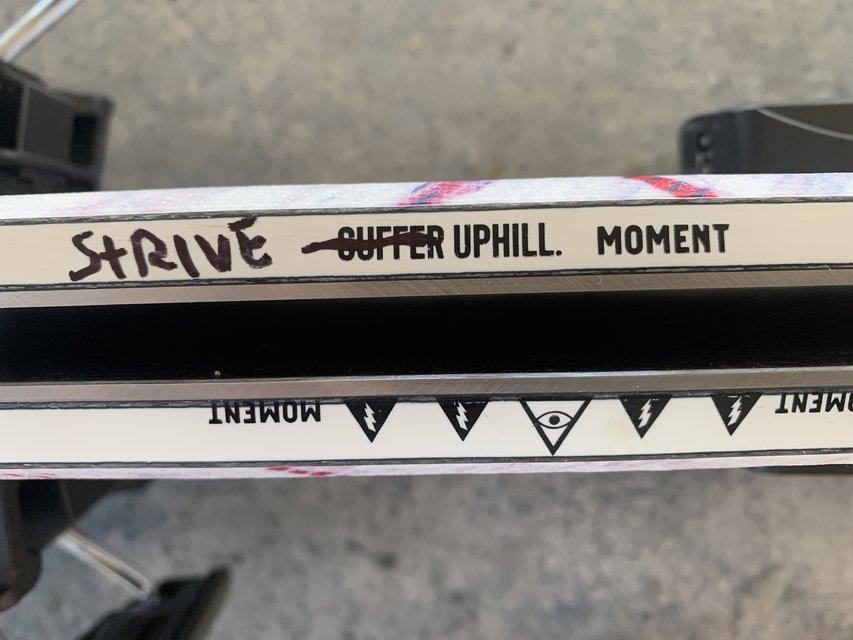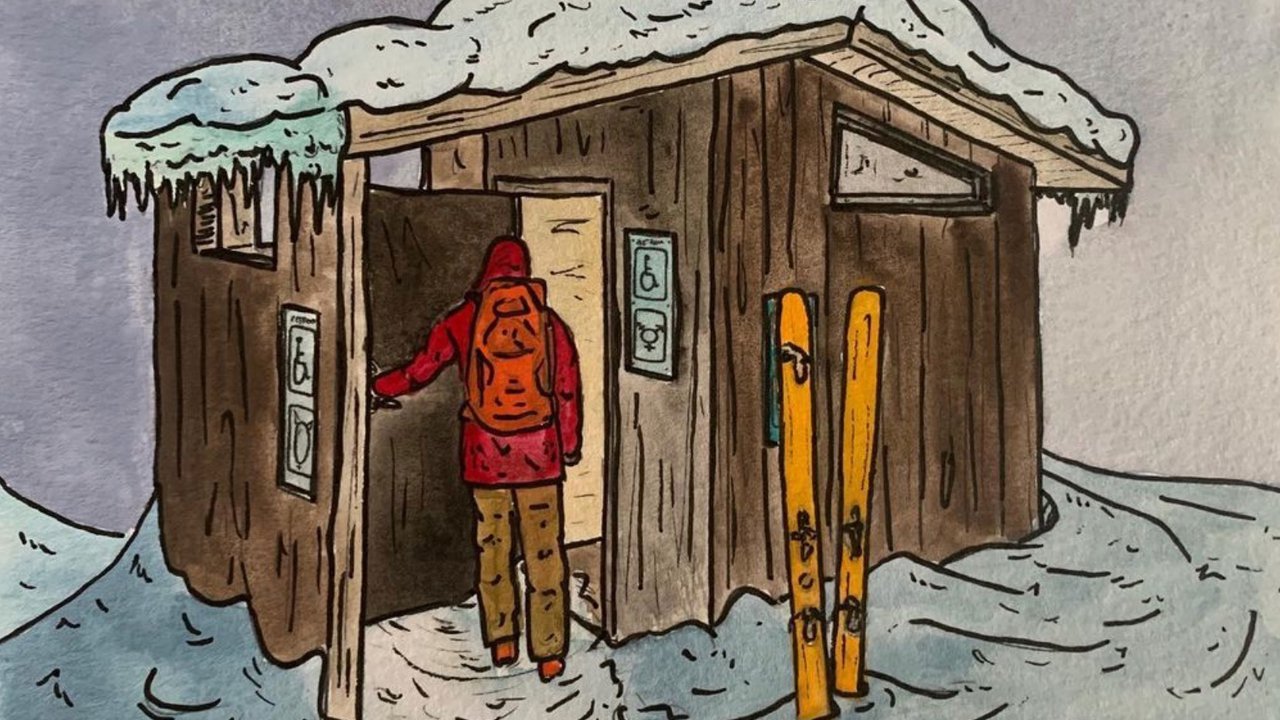September is my favorite month for mind surfing. A light dusting of snow coats the high peaks, giving them just enough definition that attainable lines start to stand out from the nondescript grey granite of summer. My feet aren’t tired of ski boots yet, I haven’t had those first few painful reminders that I’m out of shape, approaches seem shorter, couloirs look wider, new tricks are easier to imagine when I’ve spent months riding bikes instead of swinging skis around. I can sit back with my eyes half closed and imagine new tours from start to finish. But every time I start to think about new objectives, climbing new lines with new partners, I’m reminded of my least favorite concept in backcountry skiing.
I’m not talking about frame bindings, gloppy climbing skins, or persistent weak layers. Nope, I’m referring to the concept of “suffering” in the backcountry. It’s lazy, it’s inaccurate, it’s self-absorbed, it minimizes real experiences, and I’m done using it.
This idea of “suffering” in the backcountry is rampant at every level of the industry. Everyone from your favorite pros to kids on their first bootpack like to throw that word around every time they earn some turns. And I get it, walking uphill to ski is hard. It’s uncomfortable, it’s inconvenient, it’s often painful, and on occasion can feel downright brutal. But it’s not suffering, at least not in any real sense. As skiers we should be both precise and creative with our language, and calling any sort of difficult uphill travel suffering is neither.
I’m fully in agreement that going uphill in the winter time is very hard. It’s very hard when you start out and are learning the ropes, and then, as you progress, your objectives get harder, longer, and more complicated, and everything hurts just as much as it did when you started, except now you’re further from the car. So many parts of backcountry touring suck: boots are uncomfortable, breaking trail is exhausting, layer management is nearly impossible, skin tracks are often too steep and icy, and the weather is temperamental and unfriendly. But the sum total of all of those factors is not suffering, it’s striving.
Why make that distinction? Well, in general parlance, “suffering” describes something that you’re subject to. We suffer things that are done to us, things that we have no volition in, things we cannot control. Humanity suffers from illnesses. We suffer from the effects of wars, unjust policing, genocide, violence against women, and more. We do not suffer in the mountains.
There’s an old adage that “if you’re lucky enough to ski, you’re lucky enough.” It’s rung true throughout my life, and throughout my friends’ lives. Anyone with the privilege, with the means, with the free time to get out and go wander around in the mountains, to not spend every moment of their day struggling at work, is lucky enough. And sometimes that luck means that you get to set a steep bootpack in wallowy waist deep snow up a couple thousand feet of couloir while the weather gods try to screw you and your boots try to eat your feet. That doesn’t mean you’re suffering. It means that the hobby you’re lucky enough to engage in is hard. If it were suffering folks wouldn't invest time and money to do it. They wouldn’t pay guides to take them out in the hills over and over again. Save that word for contexts where it actually describes people being subjected to hardship under duress without their consent.
There’s another adage that skiers like to bandy around, “A bad day of skiing is better than a good day at work.” And, while, in the moment, I’ve definitely stopped for a break on the skin track and wished I was drawing inside my nice warm house instead of shaking my fist at the mountains, in retrospect, I’ve never truly regretted a day in the hills. And I think most folks who throw the word “suffering” around to describe their exploits are in the same boat. We do these things because we love them. They make us feel challenged and fulfilled, they help us grow, we choose to do them because either during, or after the fact, we enjoy them. If someone is forcing you to backcountry ski with a gun to your head, that’s different. Otherwise, consider reevaluating your language.

So maybe we’re not suffering, but this shit still hurts, it’s still hard, is there a word out there to more accurately describe the challenges of backcountry skiing? I propose there is, and luckily for us, it also starts with an “S” — striving. Striving is defined as “to make great efforts to achieve or obtain something.” That’s exactly what we’re doing when we wander around on skis. We’re working hard, going outside of our comfort zones to achieve new heights. It’s an easy swap, it’s more specific, it’s more descriptive, and it just plain sounds cooler. The same goes for “sufferfests.” Did you suffer, or did some parts of that experience just suck? If it’s the latter, then you just had a good old suck fest.
I’m not out here to “cancel” every skier who wants to talk about how hard they’re “suffering” when they walk up a mountain. All I’m asking is to evaluate your language. Is suffering the most accurate and descriptive way to talk about your challenges in the backcountry? Or is it just a placeholder word you’re using because some pro who instagrams too much likes to talk about how much they suffer? Nobody is going to offended if you keep calling your exploits suffering, that would be ridiculous and silly, like being mad that an article on a ski website spoke candidly about sex. But we can do better. We can be more articulate. And skiing will be better if we try.


Comments